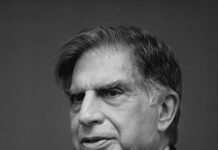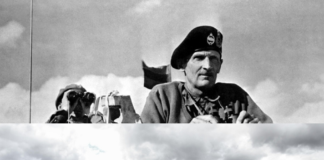Subhash Chandra Bose was born on 23rd January, 1897 in Cuttack as the ninth child among fourteen , of Janakinath Bose , an advocate , and Prabhavati Devi, a pious and orthodox lady. He was a brilliant student and topped the matriculation examination of Calcutta province and passed his B.A. Philosophy from the presidency college in Kolkata.
He remained away from the Indian freedom struggle due to his parents’ wishes and sent him to England for the preparation for Indian Civil Service. He ranked fourth in the Indian Civil Service examination and was selected , but he did not want to work under foreign government. He resigned from ICS job on 23rd April, 1921 and returned to India. He came under the influence of Mahatma Gandhi and joined the Indian National Congress.
Gandhi directed him to work with Chittaranjan Das (Desbandhu), the Bengali leader whom Bose acknowledge as his political guru. While Chittaranjan Das was busy in developing the national strategy. Subhash Chandra Bose played a major role in enlightening the students , youths and labourers of Calcutta. He was eagerly waiting to see India , as an independent , federal and republic nation.
He was the leader of the youth wing of the Congress party , in the forefront of the trade union movement in India and organized Service league , another wing of Congress. He was admired for his great skills in organizational development.
Bose advocated complete freedom for India at the earliest , whereas the Congress Committee wanted it to phases , through a dominion status. Other younger leader including Jawaharlal Nehru supported Bose and finally at the historic Lahore Congress Convention , the Congress had to adopt Poorna Swaraj as its motto. Bhagat Singh’s martyrdom and the inability of the Congress leaders to save his life infuriated Bose and he started a movement opposing the Gandhi-Irwin Peace Pact.
He was imprisoned and expelled from India . But defying the ban , he came back to India and was imprisoned again. Bose warned the Indian people and the British against dragging India into the war as the situations of an second world war emerged in late 1930s.
He was elected President of the Indian National Congress twice in 1937 and in 1939, the second time defeating Gandhiji’s preferred candidate Pattahi Sitaramayya. But Gandhiji took it as his own defeat and Subhash Bose was forced to resign from the President post due to the tension emerged in the Committee working committee.
He resigned from the post of president and formed a progressive group known as Forward Bloc(1939). The second world war broke out in Europe. India was dragged into the imperialist war by an ordinance issued by the governor general India a belligerent country.
In 1940 , the Bengal Government arrested Bose on the eve of Anti-Holwell Movement Satyagraha at Calcutta and sent him to jail. In prison Bose resorted to Hunger strike and was released in December ,1940. On 26th January,1941, on the historic “ Independence Day”, Bose escaped from police surveillance at Calcutta and via Peshawar and Russia reached Berlin from January,1942 , Bose began his regular broadcast from Radio Berlin , which aroused great enthusiasm in India.
Bose believed in popular maxim, ‘enemy’s enemy is my friend’. In other words , since Hitler and Mussolini (whatever their political ideology) were the enemies of Imperial Anglo-French Bloc, they were India’s friends and could help India in uprooting British rule from India. In his broadcast from Berlin radio on March 1 ,1943 Bose said : ‘ In the present case those who are trying to overthrow the British Empire are helping our liberation and are therefore our friends and allies, while all those who are trying to save that empire are only attempting to perpetuate our slavery………… Victory is assured , time is working for us . Our allies abroad are ready to help us. What more one can desire ? Be confident that India is going to be free , and that before long. Down with British Imperialism ….. Long live free India ! Long live revolution!”
The Axis powers (mainly Germany) Bose , military and other help to fight the British . Japan by his name has grown into another strong power , occupying key colonies of the Dutch, the French and the British in Asia. Bose stuck alliance with Germany and Japan. He rightly felt that his presence in the East would help his countrymen in freedom struggle. In July, 1943, he arrived in Singapore from Germany.
In Singapore he took over the responsibility of the Indian indeprendence movement in East Asia from Rash Behari Bose and organized the Azad Hind Fauz comprising mainly of Indian prisoner of war with Japanese support. INA freed the Andaman and Nicobar island from the British and were renamed as Swaraj and Saheed Island . INA entered into the Indian mainland and captured Kohima and Imphal. They were now inside India and were determined to drive out British. But the bombing on Hiroshima and Nagasaki changed the history of mankind. Japan had to surrender. The defeat of Japan and Germany in the Second World War forced INA to retreat and it could not achieve its objectives. Bose gave his slogan to his army i.e. ‘Delhi Chalo’ and ‘Jai Hind’. He had inspired his army men through his great words “Give me blood and I will give you freedom” to make his motherland free from the rule of Britishers.
It is said that Netaji Subhash Chandra Bose died in a plane crash in 1945. As there is no ‘irrefutable proof’ of Subhash’s death in the air crash. The government of India appointed a commission of Enquiry under the chairmanship of Justice Mukherjee to probe into the facts and circumstances relating to the disappearance of Netaji. Some people say that Netaji stayed in Shoulmari Ashram in late 1960’s. It is also said he is seen near Nehru’s funeral and he also seen in Paris peace conference and also as Taskent Man. It is also believed he used to stay as Gumnaami baba in Faizabad. Later on some people believed that he also seen as Sant Samrat(Mouni Baba).
— Tamoghna Dey










